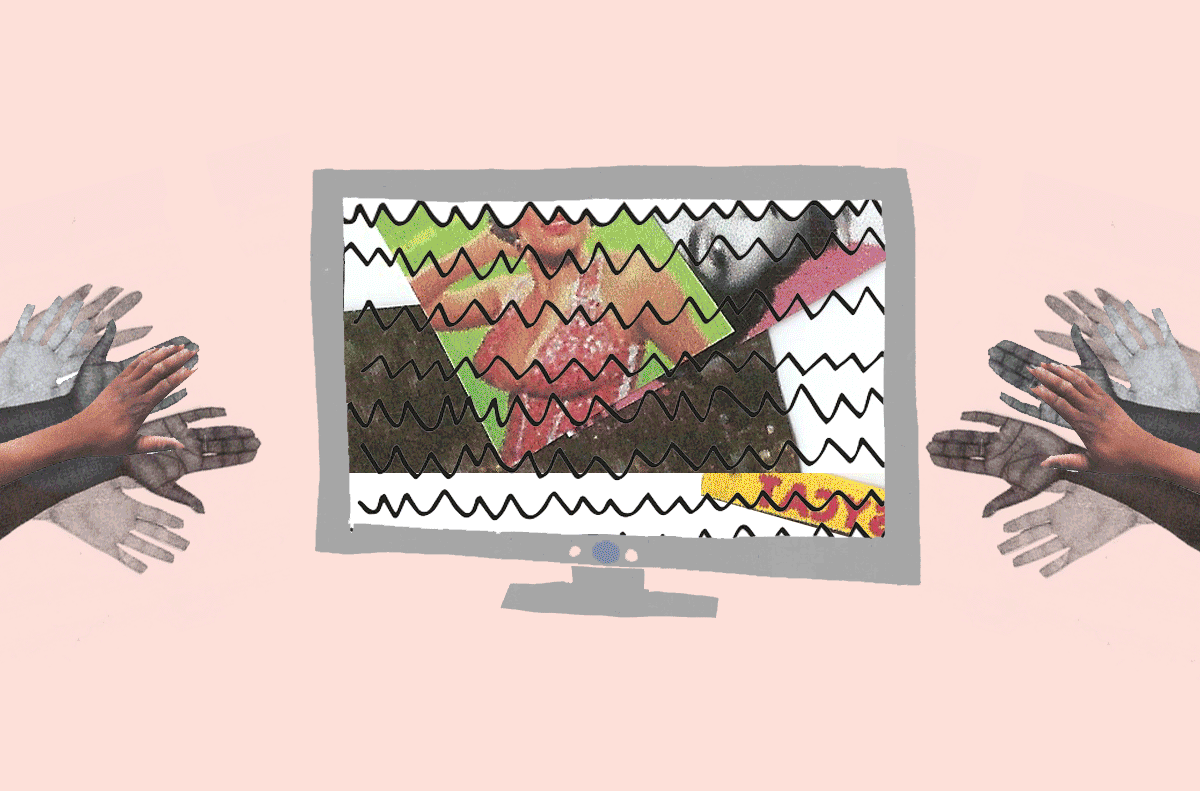
Image by Naomi Gennery
Health and Wellness have become a combined industry in relatively recent years, particularly in light of emerging discussions on mental health and self-care, a bandwagon that corporations and brands in the health sector are hungry to sink their teeth into.
However we may feel about the Kardashian-Jenner clan – successful female entrepreneurs or B-list celebrities riding on a purely viral wave – we can all agree that they have got some incredible global brands wrapped around their collective little finger, and some pretty creative marketing methods in their family portfolio. Kendall Jenner, the highest paid model of 2018 according to Forbes, recently caught the internet aflame in what appeared to be a gut-wrenchingly heartbreaking story of her past, but was in fact a commercial partnership with skincare brand Proactiv as their new celebrity ambassador. Proactiv’s list of endorsers is extensive – including Lindsay Lohan and Katy Perry – and controversial. Jenner and Lohan have both allegedly undergone expensive surgical treatment for their skin, which stands completely counter to their claims of being “normal” young women who are “able to understand” the struggles of those dealing with acne issues. They may now feel delighted and comfortable in their own skin, selling this sentiment to their fans, but the credit certainly does not go to Proactiv.
The narrative from these brands is identical throughout: our pharmaceutical treatment or short-term, band-aid cure will make you and those around you happier, so we will help you tick the self-care box and aid you on your journey to emotional and mental wellness. The health sector is neither equipped, nor willing, to have genuine, constructive discussions about their consumers’ wellness. Instead, they dabble in potentially self-destructive shallow waters, forming disingenuous partnerships such as that of Jenner and Proactiv.
“The wellness industry implies the perfecting of a particular physical aspect will be the solution to wholesome and holistic mental health”
In dissecting marketing communications aimed at women, it becomes apparent that the health sector is making dangerous leaps between physical health and mental wellness, implying that achieving the former leads to automatic fulfilment of the latter, when in fact the latter needs care and attention of its own.
There is a tendency of isolating certain parts of the body – in Proactiv’s case it is our skin – that suggests “perfecting” a particular system or organ will be the solution to wholesome and holistic health. Proactiv’s campaign fails to mention the impact stress and anxiety has on the skin. While it is true that bad skin can cause further stress and anxiety, stress and anxiety also causes bad skin, which shows that the relationship between the physical body and mental wellbeing is circular as opposed to linear.
The health and wellness industry ignores the interconnected relationship between physical and mental health. This, especially in regards to women, reveals how it simultaneously does little to help consumers, but instead exacerbates the problem at hand.
Brands that have always had market offerings for the physical body now also claim to have the commercial solution to the stresses of life as well. Despite having recently extended its “inclusive” marketing audience to include men, WeightWatchers still fundamentally pushes the narrative that weight loss equates to happiness, and that food is the sole reason for weight fluctuation.
“Dare they suggest that these women slow down, take some time for themselves”
By strategically creating a brand community of WeightWatchers advocates, led by fitspo mama Kate Hudson, the brand simulates a sense of community and mutual understanding, rather than addressing some of the medical and mental causes of weight gain. Similarly, WellWoman comically claims to have a capsule-sized solution to the “demands of modern life”, even fabricating a bespoke cure for tired women. Dare they suggest that these women slow down, take some time for themselves, and eat some spinach and nuts to get the iron and vitamins that the supplement is filling in for…
Perhaps the most shocking of all is infamous brand TENA, who sell products aimed at women who suffer from urine incontinence. I have always seen TENA marketing as ahead of the curve, transforming and celebrating the “oops moments” that are so common amongst those who are older, or who have given birth. But despite its commonality, general medical advice still stipulates that urine incontinence is worth seeing your GP for, in case it indicates any other underlying medical condition. TENA, predictably, does not seem to be an active advocate of any medical intervention, with the information of how to request your free sample more readily available.
It is highly ironic that I used to perceive TENA as revolutionary in its advertising about lady-bits, when in fact, by shutting down conversation about the potential severity of urine incontinence, the brand is complicit in further stigmatising women’s bodily health.
“It is essential companies address wellness in a holistic way that also recognises their own shortcomings”
These brands and their marketing campaigns create a false sense of security. They parade products that can slip easily into an unfulfilling lifestyle without solving the problem the lifestyle itself may be causing. Tiptoeing around difficult conversations only worsens the stigma, and perhaps in some dark way, contributes even more to the farcical need for these products.
It is essential that companies address wellness in our consumerism-driven society, but it needs to be in a holistic way that also recognises their own shortcomings. WeightWatchers can learn from This Girl Can, a campaign that encourages women to engage in physical activity but also appreciates and celebrates the emotional struggle that this may bring about.
TENA, on the other hand, can take a leaf out of THINX’s book, a fresh-faced brand selling period underwear through the clever medium of a head-on collision with controversy, plastering personal period stories on one of the most extensive transport networks in the world. Founder Miki Agrawal has fought hard to get her campaigns in the public domain, which address themes such as vaginal health and transgender people who get periods, daring to start a holistic conversation around menstrual health.
So, let’s talk about menopause and the emotions attached. Let’s talk about some people getting PMS so badly that they have suicidal thoughts. Let’s talk about postnatal depression, and post-natal bliss. Let’s talk about acidic discharge. Above all, as consumers, let’s start questioning what we’re being sold under the bracket of “wellness”, and let’s take self-care back into our own hands.









